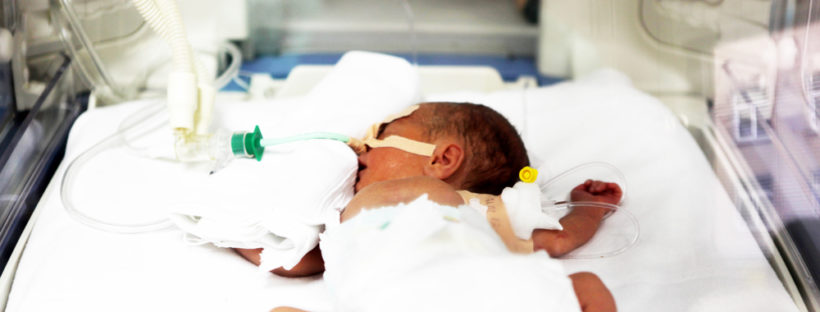by, Lori Boggan, RN
Working in neonatal intensive care can be tough no matter how long you have worked in it. With time however, many things become routine. 500 gram babies are our business. Cooling asphyxiated babies is our business. We are used to this world – the ventilators, the treatments, the pumps, the alarms. The thing is, the parents and family are not used to this. It is shocking, frightening. It is our duty to remember this is their first experience in a world they never imagined, perhaps did not even know existed. How can we as care providers support them?
Speak gently
Anytime I meet the parents of a NICU baby for the first time, I start by saying, “Congratulations.” Whether the baby is a 23 weeker with a Grade IV bleed, a deeply asphyxiated baby, or an otherwise healthy baby in need of antibiotics, I acknowledge the baby. This is now their world.
Speak Clearly
Parents want and deserve to be informed at all times. They do not need a medical background to understand. I speak simply. If I am taking care of a baby that has just had a PDA Ligation, I tell the parents that we will be monitoring baby for pain, blood pressure stability, and infection. I explain that we routinely give babies a morphine drip after surgery to treat their baby’s pain. I also explain that sometimes baby can have blood pressure instability and may need support with medication. In this way, they are informed of what is happening, can happen.
Speak Carefully
I do not give false hope for a baby that is critically ill. When a parent asks me if their baby is going to die, I respond by saying that the baby is critical and that we are doing everything we can to support them. No one, not even the doctors, can predict with exactness what course the baby will take. I never tell a parent that everything is going to be OK, even if their baby is stable.
Speak Calmly
Speak slowly, speak calmly. Don’t rush when explaining something. Take your time. If they have questions that you can’t answer, tell them it is a good question for the doctor. Take the time they need to help them process.
Speak without Judgement
A new mom that is hysterical over the birth of her stable 30 week infant has the right to be hysterical. Seeing a tiny premature infant in an incubator with multiple lines and leads is not the picture parents have when imagining their baby. They imagine a robust baby in their arms. Yes, they are lucky their baby is stable compared to the one with IVH, but this undermines what they are feeling. We know that their baby will likely be OK, but they don’t.
They have every right to feel sad, frightened, angry. It is the grieving process that they must go through. When we assume the responsibility of the baby, we assume responsibility for the parents as well. Our job is that of support – to put a hand on the shoulder, give a hug, get them a glass of water, answer their questions, let them know we are here.
 Lori Boggan, RN
Lori Boggan, RN
Lori is a NICU Staff Nurse at Sahlgrenska University Hospital in Gothenburg, Sweden. After becoming a nurse, Lori traveled across the country to work a three-month travel contract in San Francisco, California. Nearly five years later her journey continued to Gothenburg, Sweden, where she now lives and works. She also write her own blog Neonurse at https://neonursetravels.com/


I could go on and on about how there is a great need for communication with parents about NICUs. Thank you for doing this, even if it’s just scratching the surface of what needs to happen. Would love to see ALL hospitals w/ NICUs having a parent-preparation kit in place.
Thanks for reading 🙂
I recently supported my first premature birth as a doula, and I could have used this list then! I think the biggest thing is always sensitivity. This is a beautifully written post. Thanks!
Thanks for taking the time to read 🙂
Soooo beautiful!!!